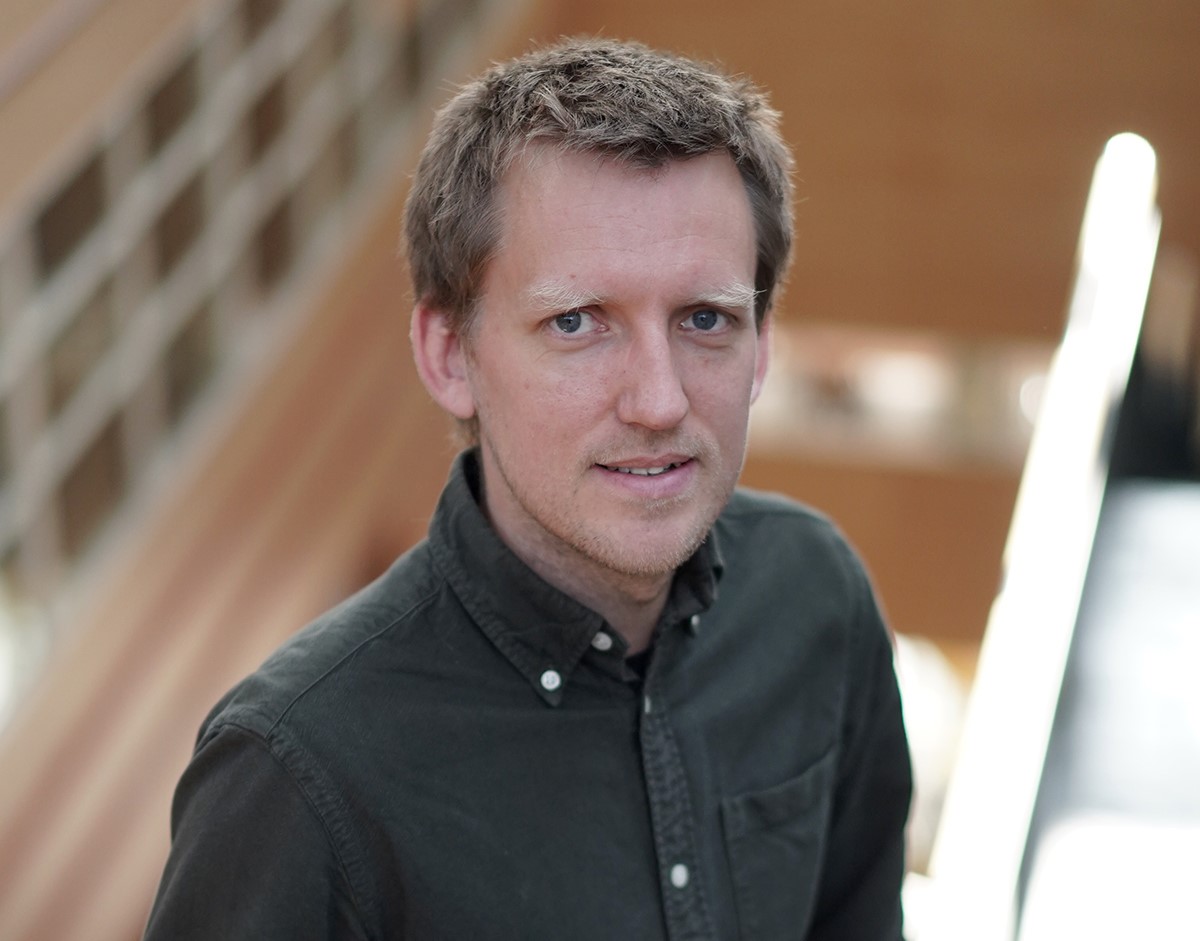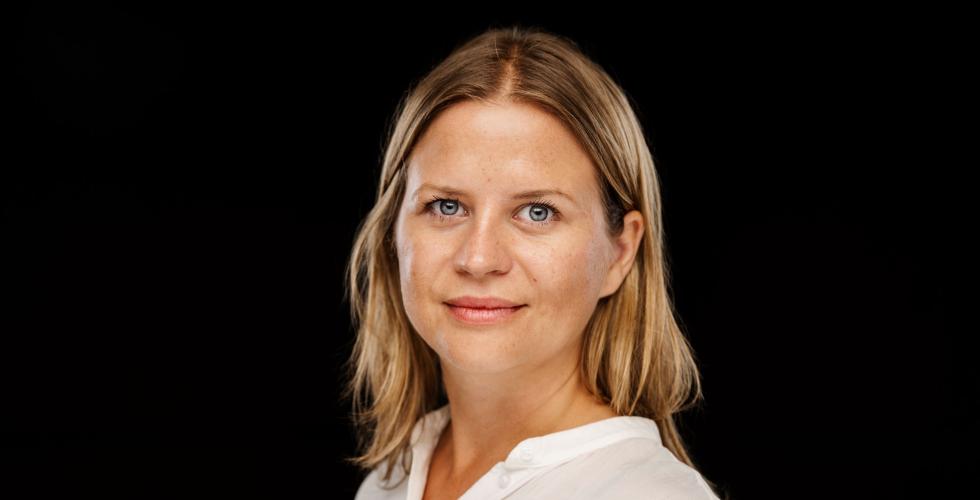Major knowledge gaps about class in academia
A memo with the probing title “What do we know about class in academia?” was recently published. “We know very little about the relationship between social background and an academic career,” says Edvard Nergård Larsen.
Edvard Nergård Larsen, a researcher at the Institute for Social Research and author of the knowledge summary "What do we know about class in academia?" (in Norwegian), uses the term knowledge gap to describe the status.
“My review reveals how little we know about how social background hinders a career in academia,” he says, and adds:
“While there is a lot of research on the relationship between higher education and social background in general, little has been done on the relationship between social background and access to and a career in academia.”
Larsen has reviewed 20 years of research on the importance of social background or class in academia, with emphasis on Norwegian and Nordic research.
Only one Norwegian study
There are few examples of Norwegian research that has looked at the relationship between social background or class and an academic career, according to Larsen.
“A 2006 study by Arne Mastekaasa is the only Norwegian study that systematically deals with social background and recruitment to doctoral programmes.”
He explains that Mastekaasa uses Norwegian register data in his study to explore the hypothesis that social background should become less important the further up the education system you go. The data review confirmed Mastekaasa’s assumptions.
In the study, Mastekaasa also covers which aspects of social background impact the transition from a master’s degree to a doctorate. He analysed this using three variables, Larsen explains; parents’ education, whether the parents are employed in higher education or research, and their income.
“What are his findings?”
“The study concludes that having parents who are employed in higher education or research has a particularly significant impact.”
Growing body of European research
A German study, by Bachsleitner et al. also draws attention to admission to doctoral programmes, according to Larsen. He explains that Bachsleitner represents a growing body of European research literature on social background and doctoral programmes.
“The results of the German study indicate, among other things, that parents’ education definitely plays a role, also in the transition from a master’s degree to a doctorate. This was particularly evident if the parents had a doctoral degree.”
Another relevant study has been conducted in our neighbouring country, Finland, which looks at both recruitment to doctoral programmes and the way forward to employment in academia.
“Juoni Helin’s main finding is that Finnish professors are highly selected in terms of their parents’ education. Among those who have at least one parent with a master’s degree or equivalent, 1.3 per cent become professors. The corresponding figure for children of parents without higher education is about 0.001 per cent.”
“The findings of the Finnish study are particularly relevant for understanding the situation in Norway, since our countries employ many of the same systems. In countries like the UK and US, taking a doctorate often costs money, which impacts people’s choices,” says Larsen.
Weak but persistent differences
In addition to the three major works that Larsen highlights, he has also identified 26 other quantitative studies that address different forms of representation and selection on the basis of social background.
“Half of these look explicitly at academic professions in one sense or another, while the remaining 13 deal with doctoral students.”
“What patterns do you see?”
“The findings show mixed patterns, but several studies confirm those indicated by Mastekaasa and Helin, i.e. that selection based on social background is weaker at doctoral level than at earlier stages of education.”
“Does that mean that class background has less to say in who becomes a research fellow?”
“It means that the most important variable for understanding biases in recruitment to doctoral programmes is selection and choices that are made at an earlier stage of an education.”
“What about a career after completing a doctorate, does social background make a difference then?”
“When it comes to academic careers after obtaining a doctorate, we see persistent, but relatively weak, correlations in several countries.”
Outsiderness due to “wrong” class
“You have primarily talked about quantitative studies, but what about qualitative studies?”
“I looked at 14 studies that use qualitative methods in the field. Most of them are from the US and the UK, and they very often take Pierre Bourdieu and his concepts of ‘habitus’ and cultural capital as their theoretical basis.”
Larsen explains Bourdieu’s thinking as seeing the individual’s class position in society as dependent on cultural capital, social capital and economic capital.
The literature review of the qualitative studies revealed a pattern, says Larsen: When it comes to academia, people with lower social backgrounds experience barriers such as a sense of not belonging, insecurity, isolation, lack of role models and identity challenges.
“The review of the qualitative studies shows that class background, in the same way as gender or ethnicity, seems to be a source of systematic outsiderness in academia too.”
Two knowledge gaps
Since there is little research on social class in academia, we must, according to Larsen, look beyond Norway’s borders for the time being, and especially to studies from Finland, the US, UK and Germany.
“Some of the research carried out abroad is transferable to the situation in Norway, but not all of it, so we need more knowledge,” says Larsen, pointing to two clear knowledge gaps he has identified in his review.
“One is to identify at what point in education class selection potentially impacts academic careers and research positions. This is crucial to being able to implement policy measures to increase diversity and representation.”
“And the other gap?”
“The other gap is that although we know a fair bit, especially through research from the US, about mechanisms that create a sense of outsiderness in academia, we need more studies that specifically address the situation here in Norway.”

Education is more influential than income
An article entitled “Who Climbs the Ivory Tower? Social origins of academic faculty in an egalitarian welfare state,” where Nicolai Topstad Borgen is one of the authors, addresses some of the knowledge gaps highlighted by Larsen.
The article, which has yet to be peer-reviewed, is so recent that it was not included in the review. However, its relevance led to it being mentioned in the summary.
“The study, on which the article is based, has explicitly looked at the social background of academics in Norway. The data in the analysis was retrieved from Norwegian register data, and the personal data from entire birth cohorts born from 1955 to 1985 in Norway,” explains Borgen, associate professor at the Institute of Special Needs Education.
The University of Oslo researcher eagerly discusses his findings, which show, perhaps somewhat surprisingly, that Norwegian academics come from a relatively high diversity of backgrounds. This is also the case for social background.
“As many as 40 per cent of university professors have parents without higher education.”
“Does that mean that people have relatively equal opportunities?”
“No. Alongside the 40 per cent – we see a different pattern. That there are major differences when it comes to the opportunity to become a university employee based on parents’ education.”
“Children of parents with a doctoral degree are about 27 times more likely to be employed by a university than children of parents who have only completed primary and lower secondary school.”
Another finding is that parents’ education appears to play a greater role than their income.
“It is also interesting that the importance of social background seems to disappear when you consider whether the individuals have achieved a doctoral degree.”
By this, Borgen means that selection takes place before admission to a doctoral programme. The greatest impact on the imbalance among academics therefore already occurs when they start higher education, he says.
“This differs from before, when it was assumed that a significant gap emerged in the transition to a doctoral programme.”
Social background affects both pay and prestige
Another pattern identified by the register data was that social background appears to affect the likelihood of obtaining positions at more prestigious institutions.
“We can thus say that social origin shapes and impacts academic careers beyond just ‘getting your foot in the door’ in academia,” says Borgen.
“Those with higher social backgrounds and higher incomes are more likely to be employed at more prestigious research institutions,” he explains.
Researchers from more advantageous backgrounds also have higher incomes than researchers from lower socioeconomic backgrounds, according to Borgen’s study.
Translated by Allegro Language Services.
Edvard Nergård Larsen is a researcher at the Institute for Social Research. Larsen has written the memo “What do we know about class in academia?” (in Norwegian) on behalf of the Committee for Gender Balance and Diversity in Research (KIF Committee).
The knowledge summary addresses research on the importance of social background or class in academia, with emphasis on the recruitment and career paths of researchers in higher education and research. The literature review is limited to the past twenty years, with emphasis on Norway and the Nordic countries.
In his knowledge summary, Larsen highlights two research projects from abroad.
The first study was conducted by Anna Bachsleitner et al. and presented in an article entitled “Social background effects in the transition to a doctoral degree – Empirical evidence from a German prospective study”. The article was published in 2018 and is based on recent data from Germany.
The second study is from Finland by Juoni Helin et al.: “Equal Access to the Top? Measuring Selection into Finnish Academia”, which was published in 2019.
Larsen also highlights a Norwegian study by Arne Mastekaasa: “Educational Transitions at Graduate Level: Social Origins and Enrolment in PhD Programmes in Norway” from 2006.




